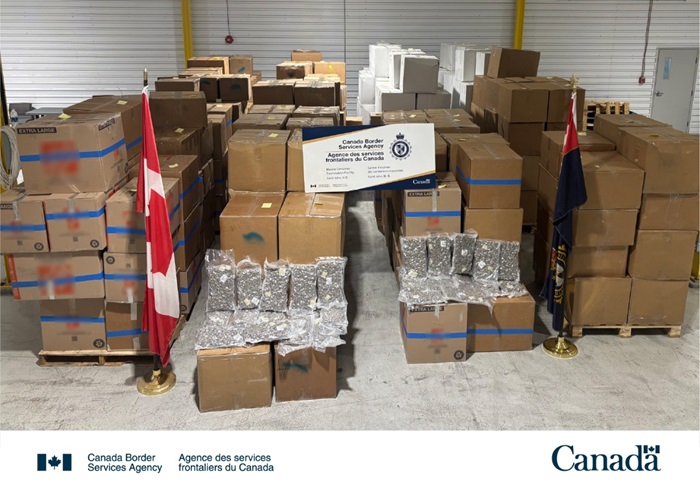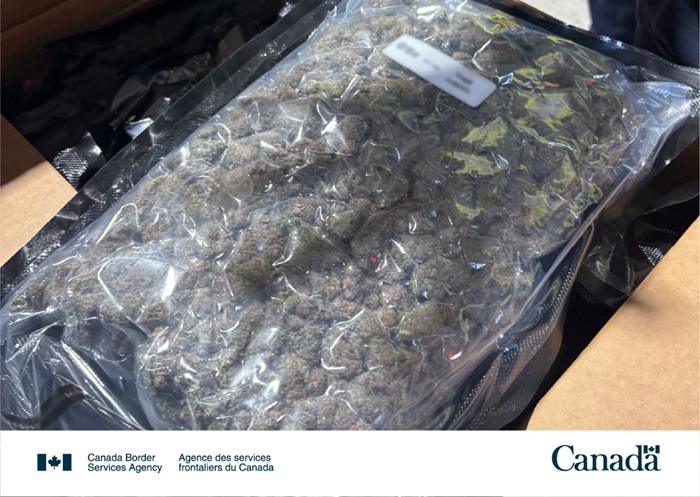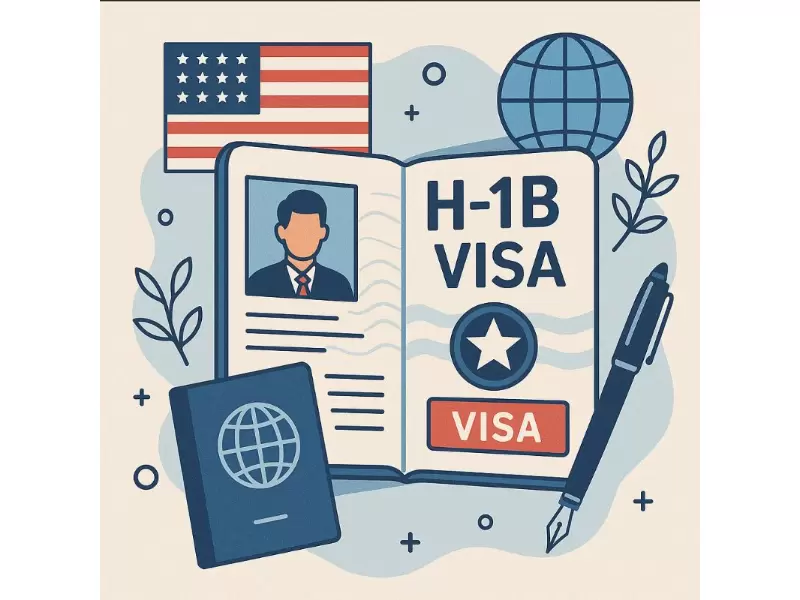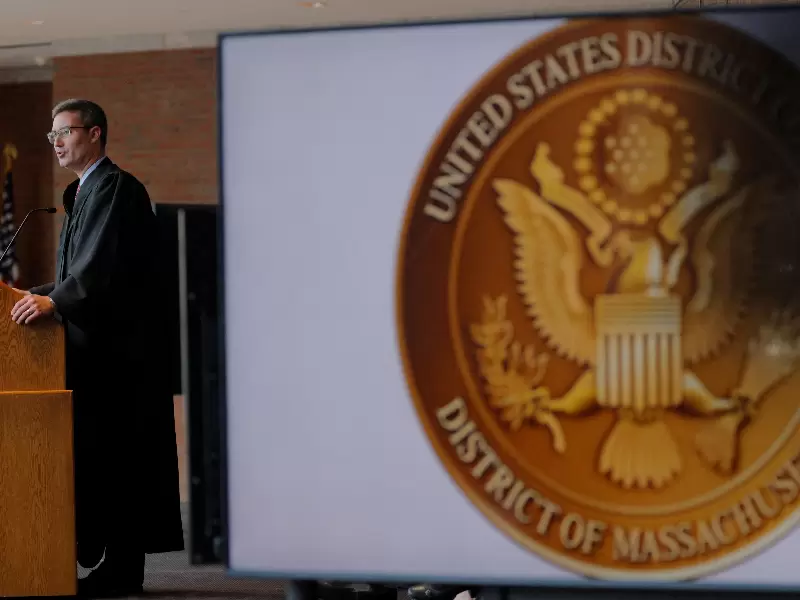Is Canada the new 'Udta Punjab'?
Canada, like Punjab, appears to be fighting a war against drugs.
 Biggest recent haul of cannabis. / CBSA
Biggest recent haul of cannabis. / CBSA
If Punjab is waging a war against drugs, Canada, too, appears to be in an unending battle to end the menace of drug smuggling across international borders.
Interestingly, the Aam Aadmi Party government in Punjab had launched a massive campaign to rid the border state of the menace of drugs by the end of May. The Liberal Government in Canada, too, has been under constant pressure from the US President, Donald Trump, to bring to an end a massive smuggling exercise taking place across the US-Canada border for the illicit trading of fentanyl, a dreaded drug whose overdose has taken hundreds of lives in North America in general and the US in particular.
More than six weeks after the deadline, the drug smuggling continues uncontrolled in Punjab. The situation is no different in Canada. Even after reinforcements and heavy investments in the Border Services, Canada is still fighting a tough battle to check drug smuggling. Various cartels, including those of Pan-American, African, and South Asian origin, have been operating with impunity.
While the US has come down heavily on both Canada and Mexico by accusing them of going slow in checking the movement of illicit fentanyl across the international borders, the Canadian government and its various agencies, including the Canadian Border Services Agency and the Royal Canadian Mounted Police, as well as the provincial police organizations, have stepped up their efforts to check the movement of drugs across the international borders.
The Canadian Minister for Public Safety, Gary Anandasangaree, says that “Our government’s top priority is the safety and security of Canadians. Illegal cannabis helps fuel transnational organised crime. This seizure demonstrates our continued commitment to fight it and keep our borders strong and secure. I applaud CBSA and RCMP officers for their commitment to securing the border.”
“This historic seizure is the result of a unified tactical plan and effective information-sharing among CBSA officers and our law enforcement partners. I am extremely proud of the level of skill, professionalism, and hard work of everyone involved in this intelligence-led operation,” says
Dominic Mallette, Regional Director General, Canada Border Services Agency, Atlantic Region.
“The RCMP continues to work closely with provincial, national, and international law enforcement partners, as well as government entities like CBSA, to ensure a coordinated response to reduce the flow of illicit drugs within and outside of Canada. Intelligence sharing and operational engagement with our partners contributes to successful action against the illegal drug trade,” says Germain Leger, Federal Policing, Royal Canadian Mounted Police.
As a result of its concerted efforts, the Canada Border Services Agency (CBSA) claims to have made its biggest ever seizure of cannabis since 2015. Its officers in Saint John, New Brunswick (NB), recently intercepted a shipment suspected to be the largest cannabis seizure on record since 2015.
On May 21, 2025, border services officers at the Port of Saint John, with assistance from CBSA intelligence officers in the Greater Toronto Area and Atlantic Regions, examined a marine container destined for export to Scotland, United Kingdom.
During this examination, officers uncovered over 6,700 kilograms of suspected cannabis, valued at $49.6 M. The drugs were falsely declared on the documentation provided to the CBSA and were concealed in nearly 400 boxes inside the container.
The quantity seized in this single shipment is three times more than the total amount of cannabis seized by the CBSA across Canada in the previous year.
The cannabis and all evidence were transferred to the Royal Canadian Mounted Police (RCMP) Eastern Region Federal Policing (New Brunswick) for further investigation.
The CBSA and the RCMP have been mandated to secure Canada’s borders by collaborating on investigations to prevent illegal drug smuggling and organized crime from threatening the safety and well-being of our communities.
Although cannabis is legal in Canada, cannabis smuggling supports organized crime and helps fund other illegal activities, such as narcotics and weapons smuggling. It is often used as an exchange for other illegal drugs being imported into Canada, such as cocaine. The trade of contraband cannabis is a major threat to the safety and health of Canadians. It is a serious criminal offence, punishable with imprisonment of up to 5 years under the Customs Act and up to 14 years under the Cannabis Act.
The record seizure at the Port of Saint John was not an isolated incident of a huge seizure of cannabis, as seizures, though of smaller quantities, had been making headlines from various parts of Canada in general and some of its correctional services institutions, thus indicating a strong link between drug cartels and those under detention at correctional institutes.
On July 10, as a result of the vigilance of staff members, packages containing contraband and unauthorised items were seized at Stony Mountain Institution, a multi-level security federal institution.
The contraband and unauthorised items seized included cannabis concentrate, tobacco, nicotine patches, a cell phone, and a charger. The total estimated institutional value of these seizures is $401,450.
The police have been notified, and the institution is investigating.
The Correctional Service of Canada (CSC) uses several tools to prevent drugs from entering its institutions. These tools include ion scanners and drug-detector dogs to search buildings, personal property, inmates, and visitors.
Of late, there has been a multi-fold increase in the incidence of smuggling of contrabands, including cannabis, cocaine, and other prohibited drugs, into correctional centres.
 Seized drugs. / CBSA
Seized drugs. / CBSA
ADVERTISEMENT
ADVERTISEMENT
E Paper
Video




 Prabhjot Paul Singh
Prabhjot Paul Singh




.jpg)








Comments
Start the conversation
Become a member of New India Abroad to start commenting.
Sign Up Now
Already have an account? Login